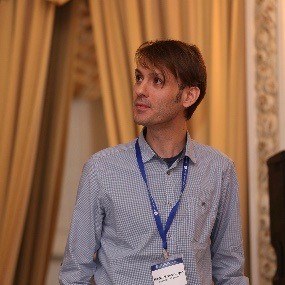Frederick Verbruggen - Ctrl-Impact

My contributions to psychology are in the study of ʻexecutive controlʼ mechanisms. I examine how people withhold or suppress inappropriate or risky actions, switch between tasks and response strategies, and adjust behaviour after bad outcomes. I also study how executive control and learning interact, and how action control, decision-making, and motivation are related. As well as my theoretical and methodological contributions to the field, my work has opened up promising new avenues for treating impulsive disorders.
Contact: Frederick.verbruggen@ugent.be
Publications: https://biblio.ugent.be/person/801001680884
Control of Impulsive Action (Ctrl-ImpAct)
Adaptive behaviour is typically attributed to an executive-control system that allows people to regulate impulsive actions and to fulfil long-term goals instead. Failures to regulate impulsive actions have been associated with a variety of clinical and behavioural disorders. Therefore, establishing a good understanding of impulse-control mechanisms and how to improve them could be hugely beneficial for both individuals and society at large. Yet many fundamental questions remain unanswered. This stems from a narrow focus on reactive inhibitory control and well-practiced actions. To make significant progress, we need to develop new models that integrate different aspects of impulsive action and executive control. The proposed research program aims to answer five fundamental questions. (1) Can novel impulsive actions arise during task-preparation stages?; (2) What is the role of negative emotions in the origin and control of impulsive actions?; (3) How does learning modulate impulsive behaviour?; (4) When are impulsive actions (dys)functional?; and (5) How is variation in state impulsivity associated with trait impulsivity?
To answer these questions, we will use carefully designed behavioural paradigms, cognitive neuroscience techniques (TMS & EEG), physiological measures (e.g. facial EMG), and mathematical modelling of decision-making to specify the origin and control of impulsive actions. Our ultimate goal is to transform the impulsive action field by replacing the currently dominant ‘inhibitory control’ models of impulsive action with detailed multifaceted models that can explain impulsivity and control across time and space. Developing a new behavioural model of impulsive action will also contribute to a better understanding of the causes of individual differences in impulsivity and the many disorders associated with impulse-control deficits.